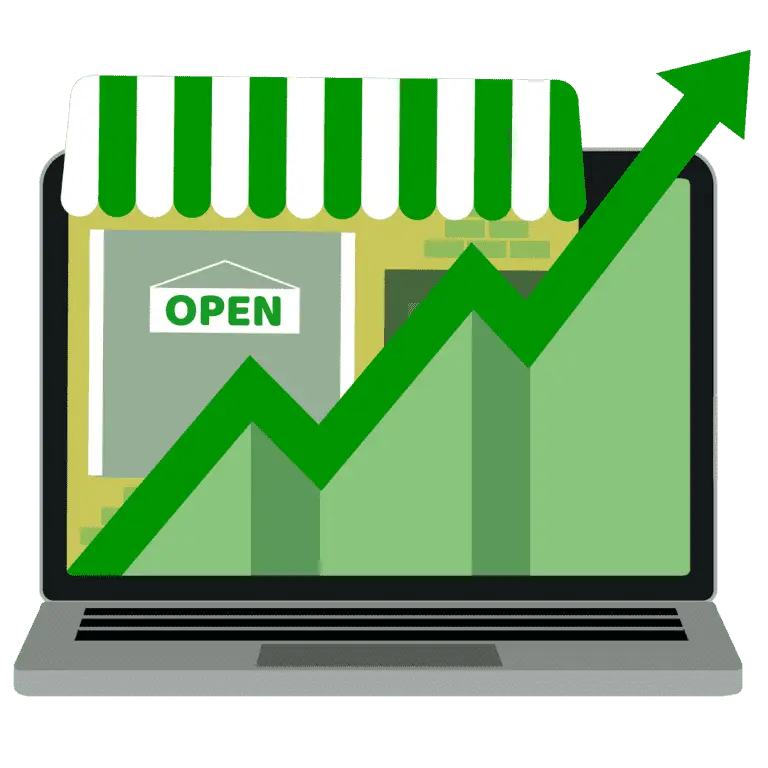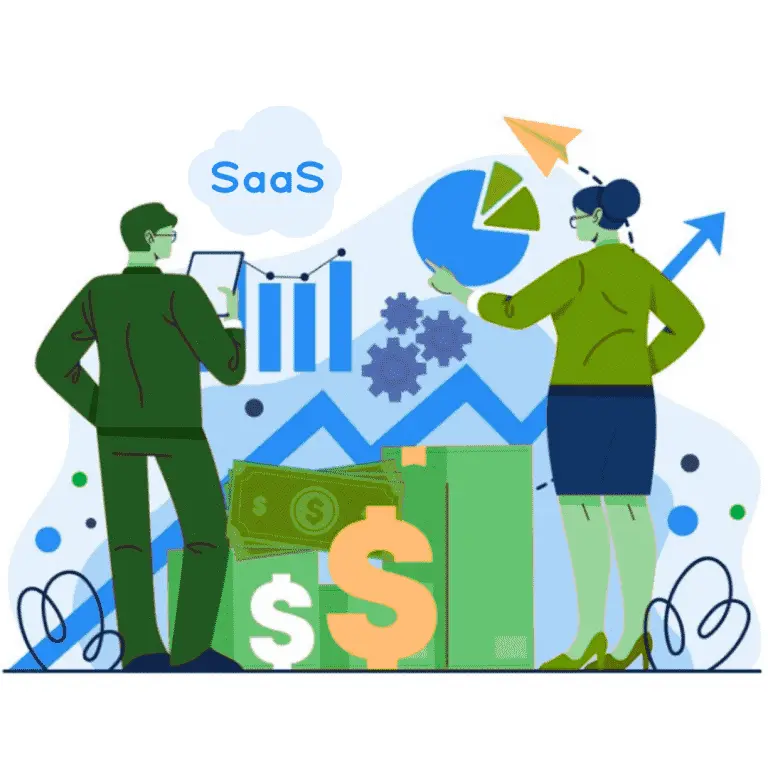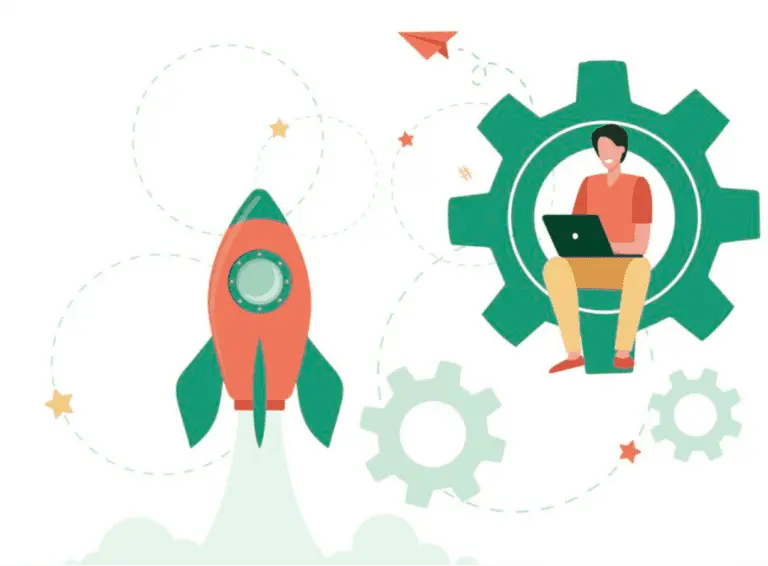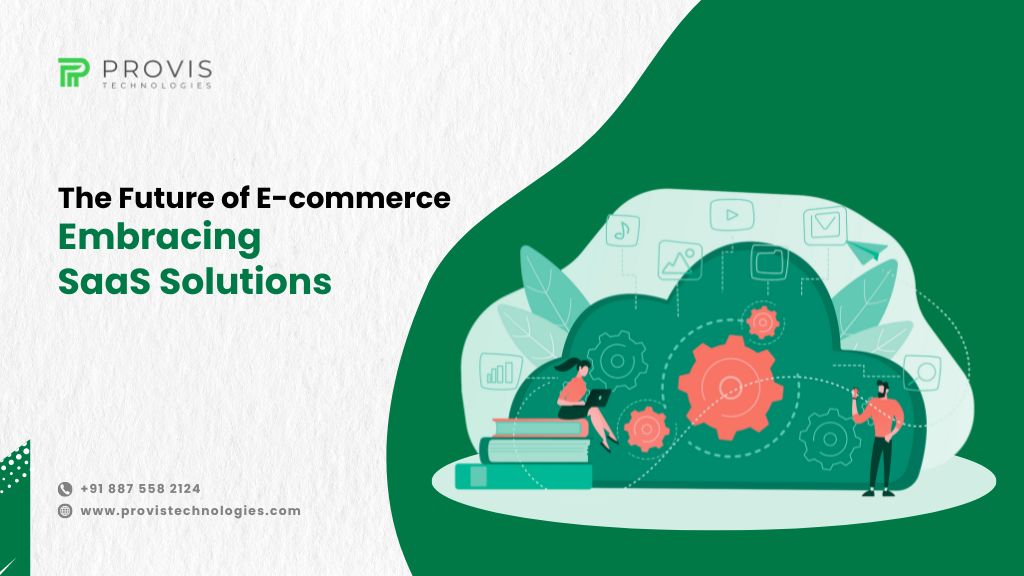E-commerce has become an integral part of the modern business space. Now, consumers turn to online platforms first to fulfill their shopping needs. As the e-commerce industry continues to evolve, businesses are exploring new technologies to stay competitive and meet the ever-changing demands of customers. One such solution gaining prominence is SaaS for E-commerce.
What is SaaS?
Software as a Service (SaaS) refers to a cloud-based software delivery model where applications are hosted and maintained by a third-party provider and accessed by users over the Internet. Instead of purchasing and installing software on individual devices, users subscribe to SaaS solutions on a pay-as-you-go basis, typically through a monthly or yearly subscription.
Top SaaS Benefits in E-commerce
Scalability & Flexibility

SaaS solutions offer excellent scalability, allowing your e-commerce business to adjust resources based on changing needs. Handling increased website traffic, expanding into new markets, or anything – SaaS platforms can easily accommodate growth without significant infrastructure investments.
Read More: Color Palette Generators for Website
Cost-effectiveness

Traditional e-commerce platforms require substantial upfront hardware, software, and maintenance expenditures. However, a subscription model is there in SaaS, which requires no need for any upfront investment. Businesses can access advanced features & capabilities at a fraction of the cost, making SaaS an attractive option for startups and small to medium-sized enterprises (SMEs).
Read More: Why is 2024 a Great Year to Start Your E-commerce?
Rapid Deployment

Implementing traditional e-commerce solutions can be time-consuming & resource-intensive. On the other hand, SaaS platforms offer rapid deployment to enable businesses to go live quickly and start selling products without extensive setup or configuration. This agility is crucial in today’s fast-paced e-commerce environment, where speed-to-market matters.
Must Read: The Future of E-commerce: Embracing SaaS Solutions
Automatic Updates & Maintenance

With SaaS solutions, software updates & maintenance tasks are handled by the service provider, freeing you from the burden of managing infrastructure. E-commerce merchants can focus on their core business activities, such as marketing, product development, and customer service, rather than IT management.
Read More: 10 Essential Tips for Launching Your E-commerce Journey with WooCommerce
Built-in Security Features

Security is a top priority in e-commerce because you deal with sensitive customer data and financial transactions. SaaS platforms provide built-in security features & compliance measures to protect against cyber threats. By leveraging these features, you can enhance your online store’s security and build customer trust.
Integration Capabilities

SaaS solutions for e-commerce typically offer smooth integration with other business tools & applications, like CRM systems, accounting software, and marketing automation platforms. This integration capability enables you to streamline operations, automate processes, and gain deeper insights into customer behavior & preferences.
Read More: Android vs iOS Which is the Best Platform for App Development?
Enhanced User Experience

SaaS platforms offer optimum user experience by providing intuitive interfaces, responsive design, and mobile compatibility. They let your customers have an enjoyable shopping experience regardless of device. They help you attract & retain customers for higher conversion rates and revenue growth.
Bottom Line
As the e-commerce space continues to evolve, embracing SaaS solutions offers numerous benefits for businesses looking to thrive in the digital marketplace. Scalability, cost-effectiveness, rapid deployment, and security – SaaS platforms provide all for a solid foundation. By leveraging the power of SaaS, e-commerce businesses can stay agile, competitive, and customer-centric in an increasingly dynamic & competitive environment.
FAQs
SaaS is a cloud-based software delivery model where applications are hosted and maintained by a third-party provider.
SaaS solutions offer scalability, flexibility, cost-effectiveness, rapid deployment, automatic updates & maintenance, built-in security features, integration capabilities, and user experience.
Unlike traditional e-commerce platforms that require upfront investments in hardware, software, and maintenance – SaaS operates on a subscription model, eliminating the need for large capital expenditures and offering rapid deployment & automatic updates.
SaaS platforms often come with built-in security features to protect against cyber threats & data breaches – ensuring the security of sensitive customer data & financial transactions.
Yes! SaaS solutions for e-commerce typically offer smooth integration with other business tools. CRM systems, accounting software, and marketing automation platforms – enable you to streamline your operations and gain deeper insights into customer behavior.
SaaS platforms serve phenomenal user experience. Intuitive interfaces, responsive design, and mobile compatibility – provide a smooth & enjoyable shopping experience, driving higher conversion rates & revenue growth.
Top e-commerce development agencies like Provis Technologies offer impeccable custom SaaS e-commerce solutions. Connect with them to discuss your plan!
Written By
Author's Picks
- Know About SaaS Development Services A Comprehensive Guide
- 01/11/2023
- What is Wix Website Builder and How to Use It
- 17/11/2024
- What is WooCommerce: Features, Setup Guide, and Expert Tips
- 17/12/2024
Categories
- AI for Startups
- AI in Web Development
- AI Integration
- AI Platforms
- AI Prompt
- AI Tools
- AI Trading Software
- Android App
- Android vs iOS Development
- Angular
- API
- API Development
- App
- app development
- App Idea
- App User Feedback
- Application
- Artificial Intelligence
- Audit Services
- Automotive Industry
- Awards and Recognition
- Business Consulting
- Business Website
- Chatbots
- CRM
- CRM for Financial Advisors
- Custom CRM
- Custom SaaS
- Custom Website
- Customer Service
- dashboard design
- Developing a Mobile App
- Digital Business
- E-commerce
- EMR Integration
- Finance
- Financial Advisors
- Financial Advisors
- GIT
- Health Insurance
- iOS App
- iOS App Development
- IoT Mobile App Development
- IoT Platforms
- IT Audit Services
- IT Consulting
- IT Strategies
- Java Development
- Laravel
- Lean Canvas
- Learning Management System
- Logistics Apps
- Mobile App Development
- MVP
- Native App
- News Aggregator Site
- OTT
- Outsourcing IT
- Payment Gateway
- predictive analysis
- Product Launch Strategy
- Progressive Web App (PWA)
- Prototype
- Recommender Systems
- Ruby
- SaaS
- SaaS Application
- SaaS Business
- SaaS Company
- SaaS Development
- SaaS Product
- SaaS Project
- Sales Funnel
- SEO
- Shopping Cart
- Software Development
- SSL and TLS
- Startup Checklist
- Technology
- Tetradic Color Scheme
- UI/UX Design Company
- Unit Testing
- User Flow
- User Testing
- Web Development
- Web Performance Optimization
- website Maintenance Services
- Website Migration Service
- Website Speed Optimization
- WooCommerce
- WordPress





